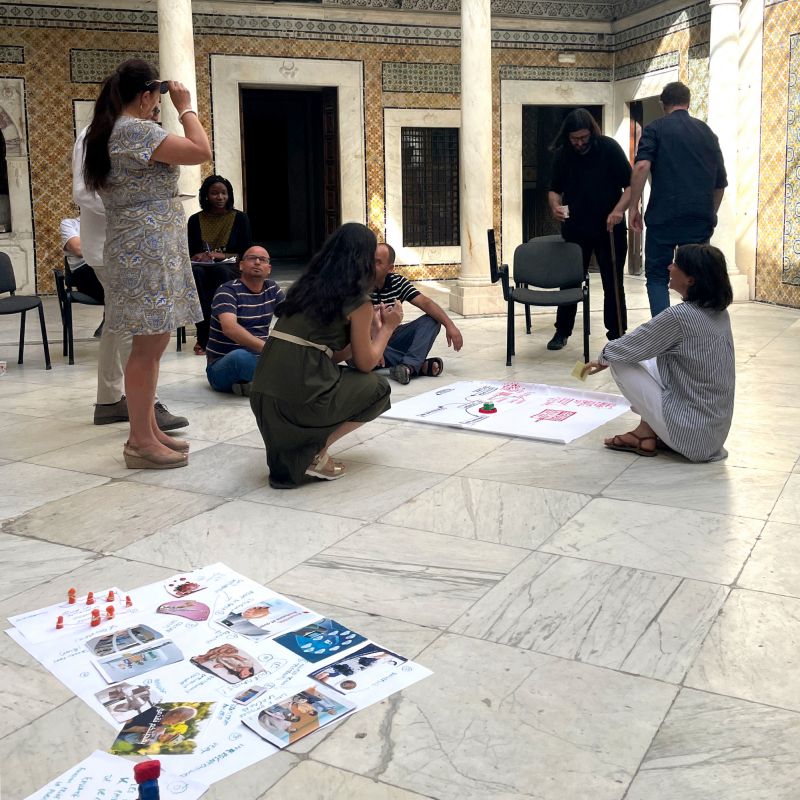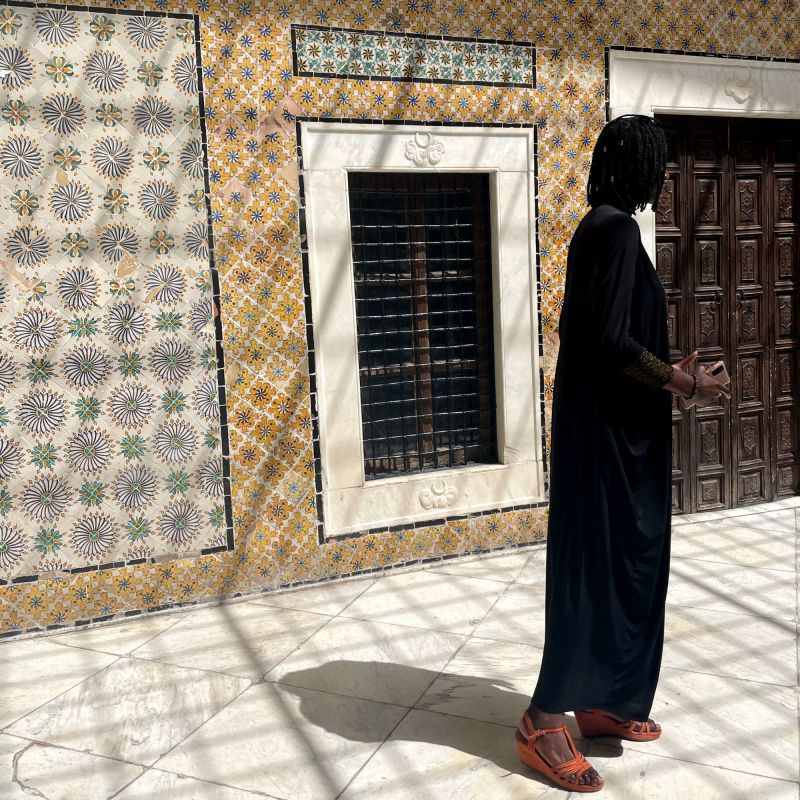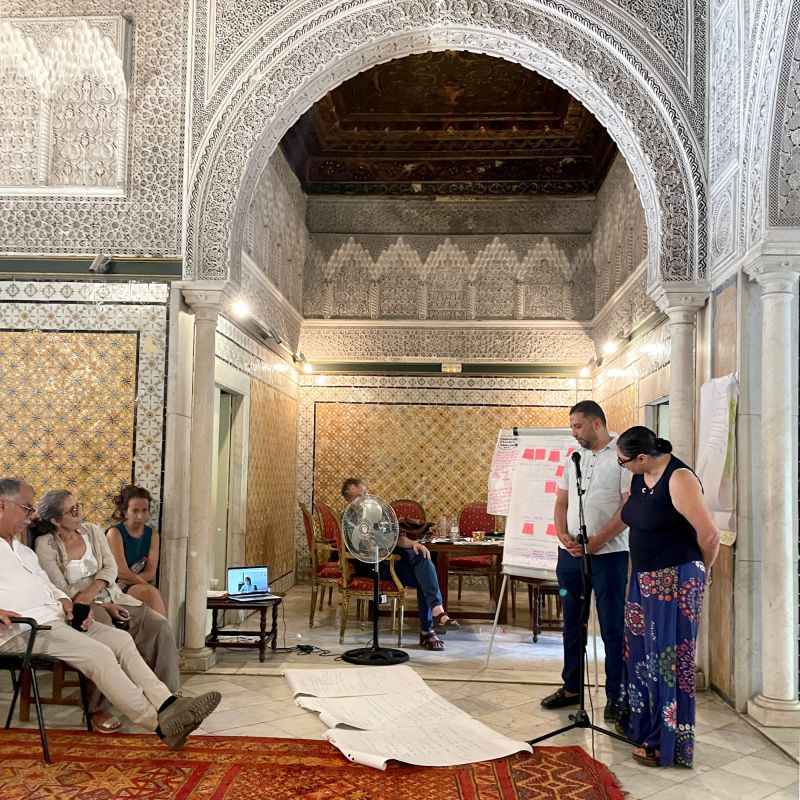On June 29, 2022, a group of thirty representatives and citizens from three tunisian cities (Tunis, Sfax, Nafta), gathered in the beautiful Dar Lasram palace within Tunis’ Medina. They responded to a call by France’s Development Agency (AFD), Unesco and U+ to work together on a common topic: The renovation, or perhaps the regeneration, of the cities’ historic centers.
The workshop intended to generate deep conversations between participants stemming from their “anticipatory assumptions”, i.e. the conscious or unconscious premises upon which they project themselves into the future, make long-term decisions, and make sense of emerging trends. This approach, preceded by a “controversy analysis”, allowed participants to discuss the futures they thought probable, or desirable; before shifting together towards a more or less arbitrary alternative future which help them challenge the representations they held as self-evident.
The workshop allowed the stakeholders working on the regeneration of Tunisia’s historic urban centers to converge on a number of common visions, to better understand where they disagreed and work on these issues, and sometimes to draft the contours of a strategic vision. For AFD, this approach based on Unesco’s “Futures Literacy Labs”, is seen as a basis to transform the way in which the Agency interacts with the diversity of stakeholders in the countries, and on the topics, where it is active.


